2019中国生物医学工程大会暨创新医疗峰会
时间:2019-11-14 08:00 至 2019-11-16 18:00
地点:济南

- 会议介绍
- 会议日程
- 会议嘉宾
- 参会指南
-
手机下单

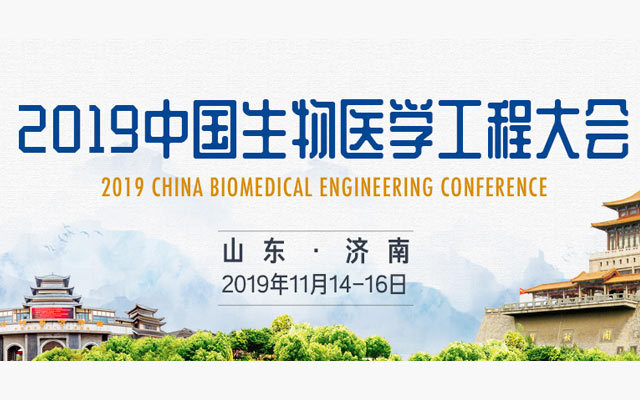
|
2019中国生物医学工程大会暨创新医疗峰会 已截止报名会议时间: 2019-11-14 08:00至 2019-11-16 18:00结束 会议地点: 济南 山东会堂 山东济南马鞍山路2-1号山东大厦院内南侧 周边酒店预订 会议规模:2000人 主办单位: 中国生物医学工程学会 |
 会议介绍
会议介绍
会议内容 主办方介绍

2019中国生物医学工程大会暨创新医疗峰会宣传图
由中国生物医学工程学会主办的“2019中国生物医学工程大会暨创新医疗峰会”将于2019年11月14-16日在山东省济南市山东会堂隆重举行。
2019中国生物医学工程大会的主题是“医工融合发展 创新引领未来”。会议诚挚邀请国内外各大院校、科研院所、生物医学工程相关企事业单位的知名专家、学者、企业家参会,届时生物医学工程、临床医学、IT、BT等领域的优秀代表将汇聚一堂,就生物医学工程学科前沿、最新学术成果、产业前景、人才培养等方面开展深入研讨。
2019中国生物医学工程大会将是今年我国生物医学工程领域的学术盛会。大会将采取特邀报告、专题讲座、卫星会议、项目路演等形式进行广泛深入的学术交流,邀请诺贝尔奖获得者、国际组织领导人、院士和生物医学工程领域的科学家汇聚一堂,围绕医疗大数据管理、智慧健康、医学人工智能、纳米医学工程、神经工程、再生医学、医学科技发展趋势等方面展开研讨,会议规模预计2000人。参会代表可以聆听国际大师的精彩主旨演讲,参加多达10个顶级前沿科技论坛及超20个专业领域的学术研讨。
为大力推进国家双创政策的落实,着力促进科技成果的转化,推动医、企、研、投各方协同创新发展,本次大会将为国内外医疗器械企业、生物医学工程科研院所、医院、投融资机构提供近距离交流的机会。企业和科研院所可以面对面地洽谈技术转让、合作开发、人才培养引进等。会议期间,我们将设立医疗相关产品展览,为公司提供展示展位,为厂商和医护人员提供自由对话和交流的平台,是彰显企业品牌,宣传企业创新模式,展示新技术、推广新产品、拓展新市场的良好契机。
查看更多
 中国生物医学工程学会
中国生物医学工程学会
中国生物医学工程学会成立于1980年11月,业务主管单位为中国科协,挂靠单位为卫生部,是从事生物医学工程学科活动的科学技术工作者自愿结成并依法登记成立的全国性、学术性群众团体,是具有公益性、非盈利性的社会组织,是发展生物医学工程事业的主要社会力量。中国生物医学工程学会[1] 从创立的那天起,由小到大,发展到今天,已经拥有20个专业分会,基本涵盖了生物医学工程领域相关专业。学会于1987年被授予先进学会荣誉称号;2002年荣获千厂千会协作行动优秀组织奖及优秀项目成果奖;2003年荣获防治非典型性肺炎先进学会;2005年被授予科技服务先进奖;2006年被评为全国科普日活动先进单位。
 会议日程
(最终日程以会议现场为准)
会议日程
(最终日程以会议现场为准)
|
日 期 |
时 间 |
活动安排 |
|
11月14日 |
10:00 - 20:00 |
报到 |
|
11月15日 |
8:30 - 12:00 |
开幕式(颁奖)及特邀报告 |
|
11月15日 |
13:30 - 17:30 |
论坛及分会场 |
|
11月16日 |
8:30 - 12:00 |
论坛及分会场 |
|
11月16日 |
13:30 - 16:30 |
论坛及分会场 |
|
11月16日 |
16:30 -17:30 |
闭幕式(颁奖) |
二、会议专题(持续更新中)
1. F01-生物医学工程团体标准发展高峰论坛
2. F02-期刊发展论坛 —— 为健康中国搭建交流平台
3. F03-青年论坛
4. F04-肿瘤多模态微创诊疗技术创新转化论坛
5. F05-生物医学工程教育论坛
6. F06-创新医疗器械论坛
7. F07-医工结合医疗创新发展之路
8. F08-临床专科智能化与影像数据标准化论坛
9. F09-医学影像工程与技术分会
10. F10-精准免疫,创新融合
11. S01-心血管和呼吸系统
12. S02-微创介入手术视觉、导航与机器人
13. S03-精放-聚焦国产放疗技术发展,助力基层放疗水平提高
14. S04-生物材料
15. S05-组织工程
16. S06-体外循环
17. S07-医学神经工程分会
18. S08-康复工程技术前沿与产业创新
19. S09-医学影像分会场
20.S10-生物医学光子学分会场
21.S11-纳米医学与新型诊疗技术分会场
22.S12-临床医学工程分论坛
23.S13-健康5G+
24.S14-医疗大数据、人工智能和智能外科分会场
25.S15-生物力学与人类健康分会场
26.S16-生物医学传感测量
27.S17-新一代体外诊断工程技术分会场
28.S18-干细胞工程技术
29.S19-医工韶光创新论坛
30.S20-新时代中医器械的变局与破局
查看更多
 会议嘉宾
(最终出席嘉宾以会议现场为准)
会议嘉宾
(最终出席嘉宾以会议现场为准)
Mark Musen
● Professor of Biomedical Informatics and of Biomedical Data Science
● Stanford University, California, USA
Dr. Musen is Professor of Biomedical Informatics and of Biomedical Data Science at Stanford University, where he is Director of the Stanford Center for Biomedical Informatics Research. Dr. Musen conducts research related to open science, intelligent systems, computational ontologies, and biomedical decision support. His group developed Protégé, the world’s most widely used technology for building and managing terminologies and ontologies. He served as principal investigator of the National Center for Biomedical Ontology, one of the original National Centers for Biomedical Computing created by the U.S. National Institutes of Heath (NIH). He is principal investigator of the Center for Expanded Data Annotation and Retrieval (CEDAR), supported by the NIH Big Data to Knowledge Initiative. CEDAR develops semantic technology to ease the authoring and management of biomedical experimental metadata. Dr. Musen directs the World Health Organization Collaborating Center for Classification, Terminology, and Standards at Stanford University, which has developed much of the information infrastructure for the authoring and management of the 11th edition of the International Classification of Diseases (ICD-11).
Dr. Musen was the recipient of the Donald A. B. Lindberg Award for Innovation in Informatics from the American Medical Informatics Association in 2006. He has been elected to the American College of Medical Informatics, the Association of American Physicians, the International Academy of Health Sciences Informatics, and the National Academy of Medicine.
Bin He
● Trustee Professor and Head of Biomedical Engineering
● Carnegie Mellon University, Pittsburgh, USA
● Chair, International Academy of Medical and Biological Engineering
Bin He is Department Head and Trustee Professor of Biomedical Engineering at Carnegie Mellon University (CMU), Pittsburgh, USA. He is also a Professor at the CMU Department of Electrical and Computer Engineering and Carnegie Mellon Neuroscience Institute. Dr. He has made significant research contributions to the fields of neuroengineering and biomedical imaging, including electrophysiological source imaging, multimodal neuroimaging, noninvasive brain-computer interface, and noninvasive neuromodulation. His lab demonstrated, for the first time, humans can control the flight of a drone and a robotic arm in 3D space by thinking about it using noninvasive signals. Dr. He has received a number of awards including the IEEE Biomedical Engineering Award, the Academic Career Achievement Award from the IEEE Engineering in Medicine and Biology Society, the Established Investigator Award from the American Heart Association, and the CAREER Award from the US National Science Foundation, among others. He is an elected Fellow of International Academy of Medical and Biological Engineering, IEEE, American Institute of Medical and Biological Engineering, and Biomedical Engineering Society. Dr. He served as a past President of the IEEE Engineering in Medicine and Biology Society, the International Society for Bioelectromagnetism, and the International Society for Functional Source Imaging. He served as the Editor-in-Chief of IEEE Transactions on Biomedical Engineering from 2013-2018, during which the journal impact factor increased by 92%. Dr. He is the Chair of the International Academy of Medical and Biological Engineering, a Member of NIH BRAIN Multi-Council Working Group, and a Member of the National Advisory Council for Complementary and Integrative Health in the U.S.
Luming Li, Ph.D.
● Dean of School of Aerospace Engineering, Tsinghua University
● Founding Director of National Engineering Laboratory for Neuro-modulation
Luming Li, Ph.D. & Cheung Kong Scholar Chair Professor, Dean of School of Aerospace Engineering, Tsinghua University. founding director of National Engineering Laboratory for Neuro-modulation.
Dr. Li’s research activities focused on two areas: To develop medical devices or equipment for Chinese Astronauts in Chinese Manned Space Engineering, such as monitoring the health conditions, measuring the astronauts’ mass in space. The other is neuromodulation technology. As a leader of a multi-disciplinary research group at Tsinghua University, China, he has designed and invented a novel deep brain stimulation (DBS) device and move to clinical application in last 20 years. Till now, more than 8800 patients with Parkinson’s Disease, dystonia and etc. implanted his devices in 220 medical centers in China and the other 4 countries. He was awarded First prize of National Science and Technology Progress Award, China, 2018.
查看更多
 参会指南
参会指南
会议门票 场馆介绍
缴费时间 | 会员 | 非会员 | 学生 |
2019年10月15日之前 | 1500 | 1800 | 900 |
2019年10月16日--2019年11月13日 | 1800 | 2100 | 1200 |
2019年11月14日--现场注册缴费 | 2500 | 2500 | 2000 |
2.住宿、交通等费用自理。
3.所有收录论文均需要至少一个作者进行注册。每个参会者均需注册;无论是否有投稿,注册缴费即可参会。
4.与会代表参会时请携带本人身份证。已缴费代表请带好支付凭证,14日在现场注册处领取餐券和资料。
5.学生注册须凭有效期内全日制学生证。
查看更多
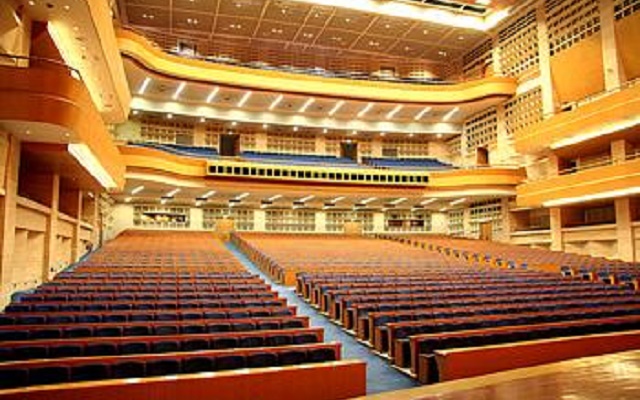 山东会堂
山东会堂
交通指南:
110路、152路、39路、48路、66路、85路、K100路、K169路、64路、K54路、129路、34路、42路、43路、K94路、28路、165路、32路、75路等。
山东大厦坐落于山东省济南市区南部,位于1300多亩的南郊园林和700多亩的泉城公园之中,东邻千佛山,环境优雅、宁静,素有“皇家园林”之称。大厦主体由世界著名的美国波特曼设计事务所设计,内部装修由南澳大利亚“五合国际”设计完成。 大厦占地150亩,建筑面积13万平方米,由客房楼、会展中心和山东会堂三部分构成,是一座集会议、展览、商务、住宿、休闲、娱乐、宴会于一体的综合性多功能建筑群体。
温馨提示
酒店与住宿:
为防止极端情况下活动延期或取消,建议“异地客户”与活动家客服确认参会信息后,再安排出行与住宿。
退款规则:
活动各项资源需提前采购,购票后不支持退款,可以换人参加。
 您可能还会关注
您可能还会关注
-
2025(第七届) 世界细胞治疗与再生医学大会暨展览会
2025-04-16 北京
-
2025中国研究型医院大会
2025-07-18 济南
-
2025第九届细胞外囊泡前沿与转化大会
2025-04-17 西安
-
2025年DIA药物信息大会暨展览会
2025-05-19 上海



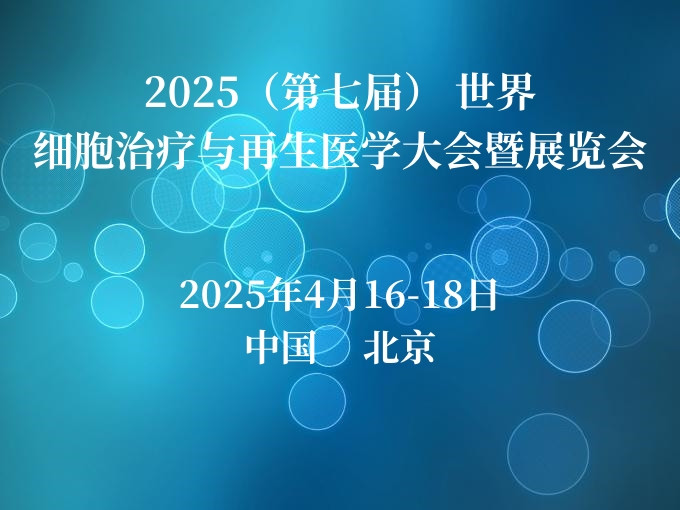
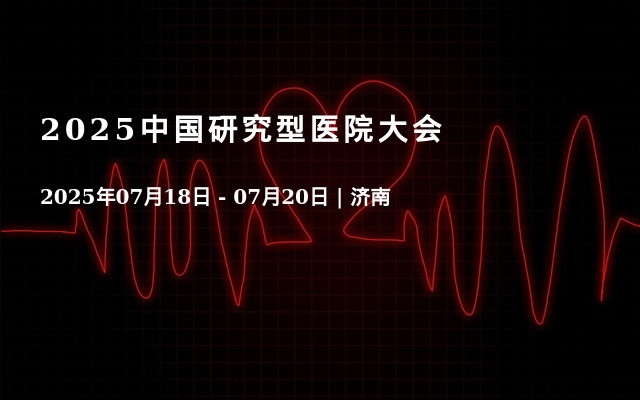

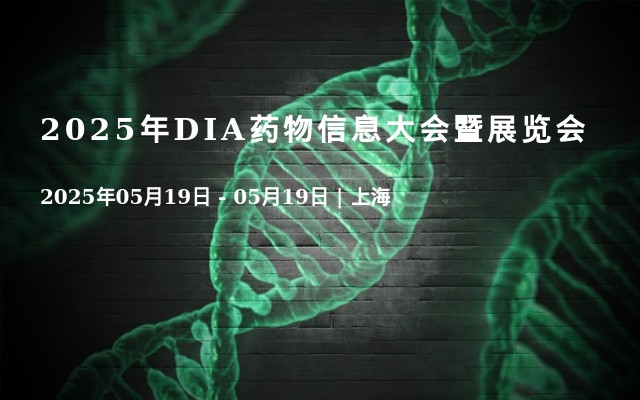

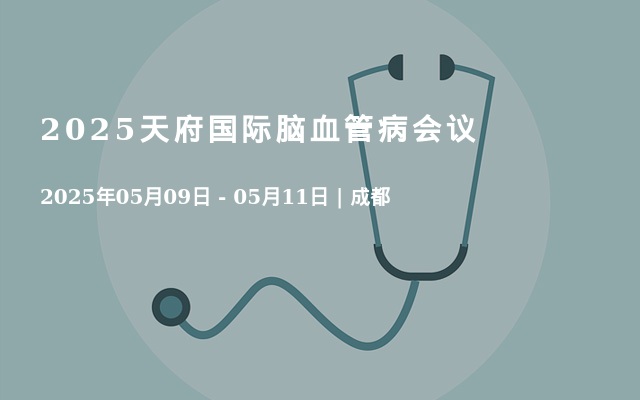




 赞助
赞助